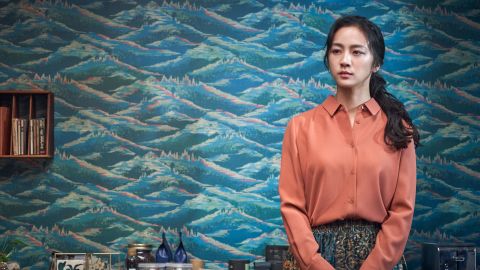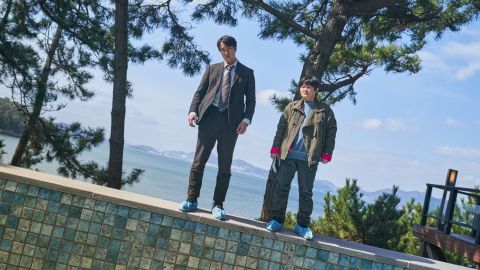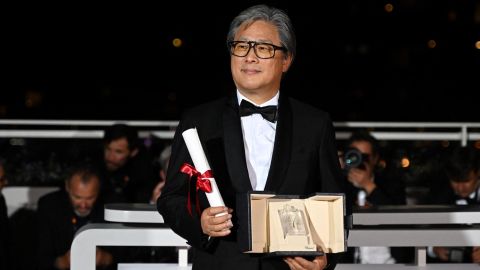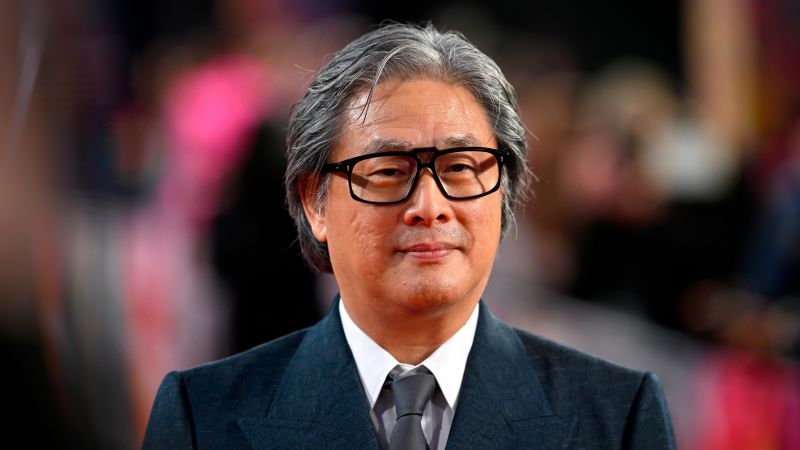‘This story departs from all conventions’: Park Chan-wook on updating film noir and subverting the male gaze in ‘Decision To Leave’ | CNN
London
CNN
—
Certain phrases don’t translate from English into Korean. “Film noir” and “the male gaze” are two of them. Sat with his interpreter in a hotel suite in one of London’s more upmarket junket venues, director Park Chan-wook says them frequently, two islands of English in a sea of Korean, part of a long answer about how “Decision To Leave,” his latest film, engages with both.
Director Park is no stranger to the slippery nature of language barriers. He’s constructed a few himself. His last film, “The Handmaiden” (2016), a period piece set in Japanese-occupied Korea, explored the power dynamic between nations and classes through the two languages. In “Lady Vengeance” (2005) a language barrier between mother and daughter forces the villain, a serial killer, to act as their interpreter. He lets out a low chuckle at the memory. “How ridiculous is that?”
The hallmarks of Park’s cinema have been its proclivity for tragedy and violence, absurdist humor and excess. But the director of “Oldboy” also knows that words can lodge as painfully as any hatchet in the head of an unfortunate soul. With “Decision To Leave,” he foregoes many old habits in order to craft a masterful neo-noir and swirling romance founded on language as much as crime.
In the film, Korean detective Hae-joon (Park Hae-il) is probing the death of a climber who fell from a mountaintop on the outskirts of Busan. Newly widowed Chinese emigree Seo-rae (Tang Wei) appears unaffected by her loss, even relieved. It kickstarts an investigation that will become an obsession for them both.

The director says a longstanding desire to cast Tang in one of his movies heavily influenced Seo-rae. The Chinese star of Ang Lee’s “Lust, Caution” did not speak Korean, but would need to in the film. “We had nothing defined for the female character,” he says. “This (was) a really great way to explore the realm of language and communication and miscommunication … and how I could use this as an artistic device for the narrative.”
Seo-rae’s Korean flits between accented and not, and is sometimes overly-formal in her word choices – “more elegant than any real Korean’s Korean,” Park says. But when she says that her husband died “at last,” it piques Hae-joon’s interest. “There’s that risqué fine line between her real intention and what could come across as a mistake,” says Park. It’s clear that we should be both watching and listening with keen attention.
Sometimes the director makes that harder for us. Seo-Rae occasionally uses a voice translator app (“our hero,” says Park), but the software has a lag time that creates its own drama. “You have to recall your visual cues and audio cues … what kind of facial expressions she had and her voice, in order to really understand her in a holistic way,” says the director. Tang’s supple performance demonstrates such technology can either mask the truth or reveal it in its most naked form.

“Decision To Leave” is a murder mystery in which the wife is the prime suspect and the investigator is compromised by his infatuation with her – hardly unfamiliar territory. But Park says he wanted to take a “very meta approach” to film noir, dividing the movie into two parts “like a diptych,” crafting “a symmetry between part one and part two.”
Seo-rae “can be labelled a femme fatale,” he explains, until she can’t. Hae-joon is the investigator, until he becomes the investigated. “The story departs from all the conventions of that genre,” he adds.
The film’s two act structure, the second responding to the first, has been compared to Hitchcock’s “Vertigo” – a formative film for Park, but not one he says he had in mind when writing this. A key difference is the perspective – or gaze – that the director places on the film.
“Vertigo” is built on the dangerous folly of the male gaze. James Stewart’s detective John first becomes entangled with Kim Novak’s Madeline. Then, thinking her dead, he meets doppelganger Judy (also Novak), onto whom he projects an idealized image of Madeline – blind to the fact he’d been duped, and that Judy had been playing the role of Madeline all along, both of them pawns in a wider murder plot. The male gaze in this case proves fatal to women.
Park says he wanted to subvert ideas around perspective (this is a film in which we see through the eye of a fish and a phone screen, after all). The first part is “full-on male gaze,” Hae-joon “steal(ing) the look.” He inserts himself into Seo-rae’s life, even fantasizing standing in her living room, observing private moments. Then Seo-rae claims the gaze for her own, pursuing Hae-joon: “She is the one now who is looking.” In an update of the classic film noir voiceover, she even starts recording her thoughts into a smartwatch – exactly as Hae-joon had done earlier.

“I’m not saying the female part overwhelms the male part,” Park says. “It’s almost like the balance is met in the end.”
“(Seo-rae) is no longer this enigmatic figure that the male protagonist needs to solve,” he adds. “She’s going to show you who she is to the audience: she is just a woman in love, and she will do anything for love, even going beyond the social and moral norms. In that sense, she drives the narrative and drives the drama forward, being this very much romanticist character.”
Park has argued all his films are about love, though the fact is often hidden behind his storytelling’s more outré antics. True to form, Seo-rae and Hae-joon’s love is illicit and tragic, though the director forgoes the outrageous and the erotic to craft a chaste and yearning romance. This foray into restraint was “the most suitable” approach, he says, but adds that doesn’t mean he’ll stick with it in future.

After Park was named best director at Cannes in May – his third award at the film festival, the others coming in 2004 and 2009 – “Decision To Leave” now hits cinemas with an eye on awards season. Surprisingly, it’s the first time one of his movies has been submitted to the Academy Awards as South Korea’s entry for Best International Feature Film. After a long, illustrious career, why was this the film the submission committee got on board with?
“I have no idea,” he says, chuckling again. “With ‘Handmaiden,’ I can kind of see why (it wasn’t submitted), because there’s too much nudity and it’s too erotic, and they would feel a little bit ashamed if they put this as the most ‘representative’ Korean film to be submitted to the Oscars. But that’s about it – I don’t know how to take this (news).”
The master of intricate plotting didn’t see this twist coming. Unlike so many he’s constructed himself, at least it is a pleasant surprise.
“Decision To Leave” debuts nationwide in US and UK cinemas on October 21.
For all the latest entertainment News Click Here

